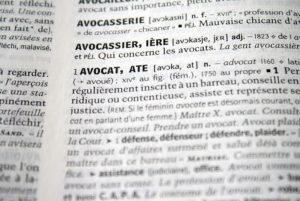 Until recently, senior citizens could be counted on as the population most likely to scorn drug abuse. In fact, the elderly typically stigmatized people who engaged in such activities. However, as Baby Boomers fill senior living facilities, they bring a somewhat looser attitude about drug use and misuse. After all, most hail from the drug culture of the 1960s. In fact, many Boomers have taken illegal drugs and tolerate current use, overuse and even abuse of prescription and recreational drugs. This post explores the troubling trend relative to Baby Boomer drug use.
Until recently, senior citizens could be counted on as the population most likely to scorn drug abuse. In fact, the elderly typically stigmatized people who engaged in such activities. However, as Baby Boomers fill senior living facilities, they bring a somewhat looser attitude about drug use and misuse. After all, most hail from the drug culture of the 1960s. In fact, many Boomers have taken illegal drugs and tolerate current use, overuse and even abuse of prescription and recreational drugs. This post explores the troubling trend relative to Baby Boomer drug use.
The Opioid Issue
Studies show that the opioid epidemic in America is firmly rooted in the senior population. Opioid addiction is growing as fast or even faster among seniors, compared to other age groups. The National Institute on Drug Abuse(NIDA) estimates 115 Americans die each day from overdosing on opioids. And, according to a reportby the government Agency for Healthcare Research and Quality, the rate of hospitalization for opioid overuse among those people 65 and older has increased five-fold since 1993. What’s more, it continues to worsen.
The crisis began when doctors prescribed opioids like OxyContin beginning in the mid-1990s, with reassurance from pharmaceutical companies that opioid pain relievers were not as addictive as previously reported. However, this opioid class of drug is highly addictive. And many patients end up abusing their prescriptions. Based on controversial research in 2009, the American Geriatric Society (AGS) announced that they were in favor of prescribing opioids. They asked doctors to consider writing scripts for opioids for any senior who experienced moderate to severe pain. Since seniors often complain about multiple chronic conditions, it is easy to see why addiction rates have skyrocketed among their population. Unfortunately, however, the problem is not relegated to opioid use, alone.
 The Rising Tide of Senior Drug Abuse
The Rising Tide of Senior Drug Abuse
The Drug and Alcohol Dependence Journal reports that among the 63% of senior study participants who had at least one alcoholic drink per month, 13% had engaged in binge drinking, which is defined as having five or more drinks in a single session. Bars and pubs have emerged as the new normal in life plan communities. And this can put seniors at significant risk of succumbing to addiction. One of the associated risks of heavy drinking by seniors is that they can stumble and fall or drive golf carts while impaired. These behaviors can have disastrous consequences. There is also a danger of mixing prescription medications with alcohol, which is not only dangerous but can be fatal.
Beyond opioid and alcohol use, there is marijuana. As more and more states (including California, where Skvarna Law Firm is located), legalize medicinal (and recreational) marijuana and prepare edible versions, more seniors turn to pot as a painkiller and anti-nausea treatment. Contrary to what many believe, this is not harmless – especially in geriatric patients. Readily available, potent marijuana strains lead to confusion, delirium, and even psychotic episodes. What’s more, due to pre-existing conditions, these impaired behaviors in seniors are often hard to assess.
Preventing Baby Boomer Drug Abuse
 Professional staff in the aging services industry are trained to identify signs of drug misuse and abuse. The Center for Disease Control & Prevention (CDC) recommends doctors opt for short-term, fast-acting medications instead of long-lasting drugs and prescriptions. But seniors who experience severe, myriad, chronic pain often take several types of pills.
Professional staff in the aging services industry are trained to identify signs of drug misuse and abuse. The Center for Disease Control & Prevention (CDC) recommends doctors opt for short-term, fast-acting medications instead of long-lasting drugs and prescriptions. But seniors who experience severe, myriad, chronic pain often take several types of pills.
The solution is education:
- Seniors should be aware of the recommended dosage, interactions and possible side effects of their medications.
- Encourage your elderly loved one’s doctor to prescribe the lowest necessary dose and look to alternative options to address pain.
- Don’t exceed the prescribed dose and follow the doctor’s instructions.
- Never take prescription medication with alcohol.
- If seniors struggle to understand their medications or experience confusion about dosage, encourage them to talk to a trusted family member.
- Consider drafting a Medical Power of Attorney document, which will allow someone the senior trusts to be advocate for their safety. Contact our office today to schedule an appointment and to discuss how we can help you with estate planning.
About Skvarna Law
If you love a senior citizen, give us a call. We can discuss how to help them set up an estate plan (909) 608-7671. We operate offices in Glendora and Upland, California and provide legal services for individuals living in San Bernardino, Los Angeles, Orange and Riverside Counties. This includes the cities of Upland, Ontario, Rancho Cucamonga, Fontana, Colton, Rialto, Chino, Chino Hills, Glendora, Claremont, Montclair, Pomona, La Verne, San Dimas, Azusa, Covina, West Covina, Diamond Bar, Walnut, La Puente, Corona, Norco & Mira Loma. Visit SkvarnaLaw.com to learn more.


